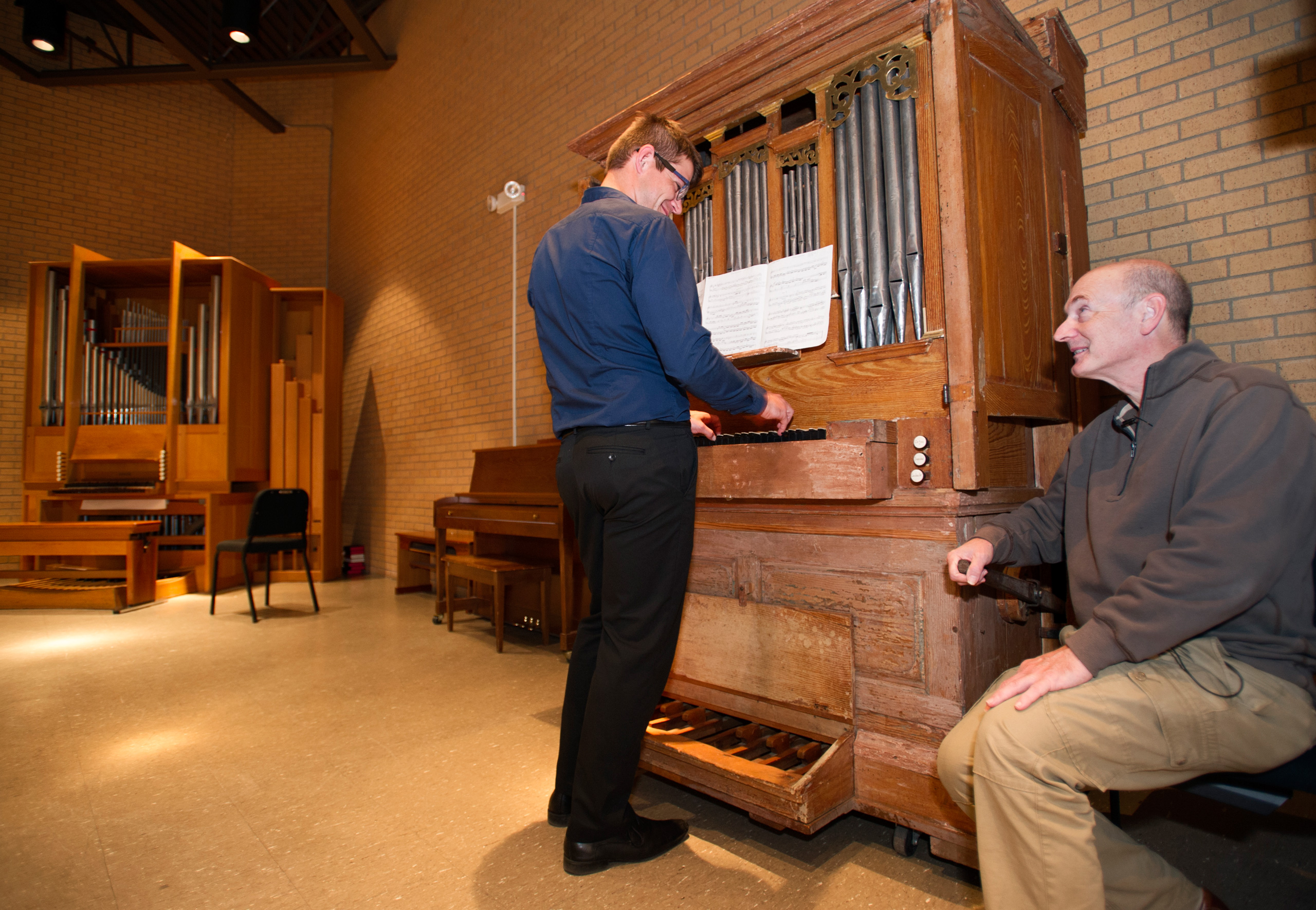
What: The first 18th century organ to arrive in Texas, an organ that was delivered to the UNT College of Music on Nov. 7, 2015, and is available for public view.
When: Available by appointment.
Where: UNT Music Building, located at 415 Avenue C in Denton.
Cost: Free.
More information: Connect with the College of Music on Facebook at Facebook.com/UNTCollegeofMusic and on Twitter at @UNTCoM.
DENTON (UNT), Texas -- The University of North Texas College of Music is now home to the first 18th century organ to arrive in the state of Texas.
The Raisin organ, named for the small Texas town where it was found, was brought to the state from Switzerland in the 1850s by German immigrants. It served as the first instrument in the Trinity Lutheran Church of Victoria, Texas, until 1884 when it was placed in storage.
The organ was discovered in a former stagecoach inn by Victoria businessman Rubin Frels. He commissioned world-renowned organ expert Susan Tattershall in 1980 to restore the organ to working condition.
It was purchased by UNT alumna Susan Ferré in 1991 and loaned to the Mesquite Arts Center for public display. In July, Ferré contacted Jesse Eschbach, professor of organ at the UNT College of Music, and asked if the school would be interested in the playable antique, which Eschbach plans to integrate into the classroom.
"My immediate response was, of course, yes," Eschbach said. "Everything moved very fast after that. In October, Dr. Ferré officially offered us this gift, and we moved it in to a dedicated room on Nov. 7."
Eschbach says he is excited to delve into the history of the Raisin organ and hopes to work with other researchers in Europe to trace its age and origin.
"The organ builder did not sign or date the instrument, but from current research, we've discovered it was possibly built in Switzerland around 1780," Eschbach said. "We hope to continue to explore its past and get more precise information."
The organ will be used in the classroom to promote research in early music as well as give students the opportunity to learn to play an antique organ. Eschbach hopes to eventually use the Raisin organ in performances and has plans to alter the room it is stored in for ease of transport.
The public is also welcome to see the organ. To set an appointment to view the Raisin organ, contact Jesse Eschbach directly via email at jesse.eschbach@unt.edu.
About the UNT College of Music
The College of Music is one of the largest and most respected comprehensive music schools in the world. Approximately 1,600 music students attend the college each year, participating in nearly 70 widely varied ensembles while engaged in specialized studies in performance, composition, conducting, jazz studies, music education, music history, music theory or ethnomusicology. Music students, alumni and faculty have made appearances on the world's finest stages, have produced numerous recordings with many receiving Grammy awards and nominations, and have written influential texts in a variety of areas in music scholarship. Distinguished University alumni can be found around the globe in top music ensembles, opera companies, universities, and schools.




